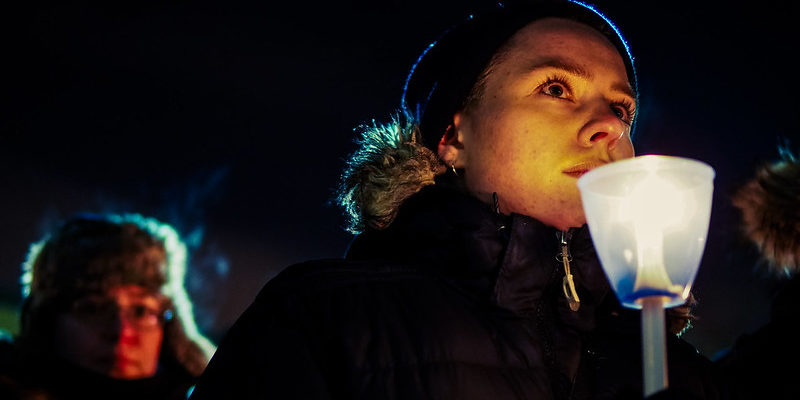It has already been five years since the tragic Quebec City mosque attack. An attack that killed six Muslim men: Ibrahima Barry, Mamadou Tanou Barry, Khaled Belkacmi, Abdelkrim Hassane, Azzeddine Soufiane, Aboubaer Thabti, and injured 45 others, including four children, while they were praying. An attack that left many children fatherless, wives widowed, and families and friends forever traumatized.
The killer was a young man from Quebec City. I deliberately do not use his name. He was big fan of former American President Donald Trump and his anti-immigration policies, and expressed support for Marine Le Pen, the leader of France’s far-right National Rally.
This year is first time the date January 29 will officially be commemorated across Canada as the National Day of Remembrance of the Quebec City Mosque and Action Against Islamophobia. It took nearly five years of advocating, public pressure, vigils, and petitions for the federal government to declare the date as such.
Now more than ever, it is important to ask ourselves: what has Canada done to prevent future Islamophobic attacks? I am afraid to say: very little.
Last July, Bardish Chagger, Minister of Diversity and Inclusion and Youth, convened a summit against Islamophobia. It promptly followed the hate-motivated killing of a Muslim family in London, Ontario by a young man who rammed a pickup truck into them, killing four and orphaning a young boy. Several Muslim advocacy groups presented recommendations to ensure this Islamophobic violence does not happen again. But after the vigils were over, politicians did very little.
Yes, there have been several waves of a pandemic and shifts in ministerial portfolios but that does not absolve the government from acting swiftly to halt the danger posed by white supremacist’s who terrorize Muslims, especially women and girls, both on the streets and online.
In December, the U.S. House of Representatives passed legislation requiring the State Department to create a special envoy to address and combat Islamophobia. During the federal election, a similar role was suggested as a first step to reduce Islamophobia domestically and internationally. As I write this on the eve of January 29, the Minister of Housing and Diversity and Inclusion, Ahmed Hussen, announced an “intention to appoint” a representative to a role like this.
Canada must take a firmer approach to eliminating Islamophobia; we have the opportunity to be a global leader in developing a model for effectively fighting hate and racism.
Most Islamophobic messages are spread online. The Liberal government had indicated its commitment to three pieces of internet related legislation. In the last parliament, the government proposed Bill C-36 to tackle online hate speech. Communities were consulted on how best to address harmful online content. The legislation did not pass due to the election and the dissolution of parliament. It is imperative the new parliament bring back this bill.
A few days ago, Omar Alghabra, the Transport Minister, who is Arab and Muslim, was called a “terrorist” by an Ontario Member of Provincial Parliament, Randy Hillier, after Minister Alghabra spoke against the anti-vaccine truckers convoy heading to Ottawa. Hillier, a supporter of such demonstrations, claimed that Alghabra is “condemning Canadians to starvation in the name of public safety.”
Despite a wide condemnation of this tweet by other politicians, Randy Hillier did not face any consequences. What’s more, I would bet he is now considered a hero among his followers. This is a small example of how the lack of leadership on Islamophobia can affect Muslims even when they are high-profile politicians.
Another important policy direction to eradicate Islamophobia is to change the way hate crimes are reported and recorded. In 2019, Statistics Canada reported 223,000 hate-motivated incidents but police only investigated fewer than one per cent of them as hate crimes. This discrepancy between the number of incidents and investigations is explained by many factors, among these are language barriers and police perception within certain communities, like Muslim communities who are often the target of surveillance by those very same law enforcement agencies. The criminal code must reflect a clear definition of hate crime as an offence, and one where prosecutors can actually meet the burden of proof. And, as suggested by the National Council of Canadian Muslims, the federal government should establish a fund for victims of hate crimes.
On this fifth anniversary of the Quebec City mosque attack, would it not be timely for the federal government to reassure Muslim communities that Islamophobia has no place in Canada? Their stance should not only be taken with words but courageous policies and actions that put an end to the floodgate of anti-Muslim hate.



